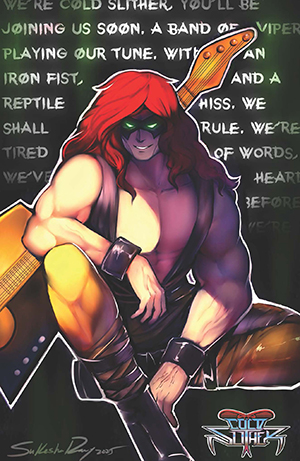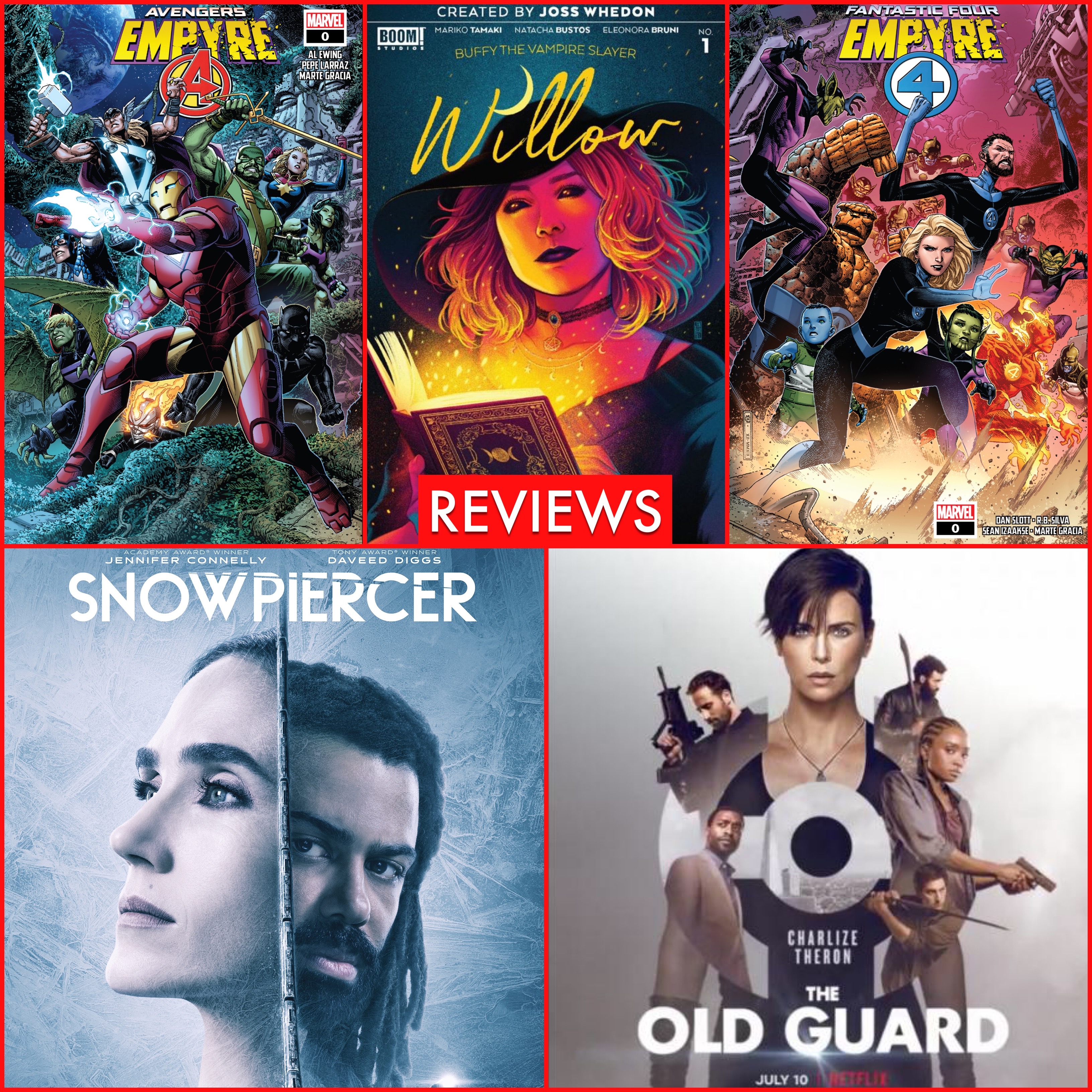|
 |
WAITING
FOR TOMMY: LARRY YOUNG
By
Richard Johnston RICHARD:
You're known for a healthy mix between new work and collected
projects that other publishers seem to have abandoned... how
do you manage that anyway? And what's the next big move? No
'80s toy licences tempt you? What about manga? Or, with your
reputation for being two steps ahead, what's next for the
industry that you've already got your hooks in.
LARRY: I like to have new comics to be produced, and
I also like to have stuff that's fallen out of print that
I think we can bring attention to. works that might have gotten
short-shrift, originally. It's not a damning thing to say
that we've sold CHANNEL ZERO better than Image did; one company's
just better oriented to deliver sales than another, on certain
projects, is all. So every once in a while, something another
company has developed is going to perform better for us than
it is for them. I fully expect something WE have developed
to perform better for another company... down the road. It's
the nature of the beast. BAYWATCH, the most successfully-syndicated
TV show of all time, was originally cancelled by NBC. So,
sh*t happens. Some folks can deliver better on one project
than they can on another. No secret to that one, really.
No Eighties
toy licenses tempt me at all, since I was in college in the
Eighties, and not playing with toys. I have no fondness for
any of those things. I wouldn't exactly rule out doing a licensed
book of some kind, but I can't imagine what property would
make sense for us to tackle. It seems silly to me to pay out
a load of money for a previously-established brand name when,
if the thought occurred, we could have produced a new thing
and have money coming in, instead.
RICHARD:
And a British company, ITV, rescued Baywatch by paying for
the second series. Apologies. Mind you, you guys did the same
for Benny Hill, so I think we're square on the cultural destruction
front. Are there any projects you've taken on that you look
back and think it was actually suited to another publisher?
LARRY: Naw, I love all of my children equally. I think
the fact we've published them means they're best-suited for
us, by definition.
RICHARD:
Talking of your children, when will someone else get to have
a month? I mean there's only twelve to go round.
LARRY:
The Brian Wood Month originally started out as kind of a good-natured
ribbing between Bri and me. January 29th's his birthday, and
one year I realized that we could relist his then-current
backlist and put out some neat new stuff by him in that month
and it'd be my birthday present to him to devote a whole month
of our energies to him as a creator and comics brand-name.
If you remember the ad for that first one, it was mostly a
picture of him, with his titles available, and funny little
quotes sprinkled around it, tweaking his "subliminal messages"
bit from CHANNEL ZERO. Goofy stuff like "It seems all my money's
spent on chicken and cheese; ten dollar comic books, and girls
who say please" and "happy birthday, mr. president; happy
birthday to you." Stuff like that. Just to make him laugh.
Originally, he was sort of against it, because he really is
sort of a shy kind of guy and he thought it'd be perceived
as too self-serving, or something. I convinced him not to
worry about it, because if it worked, we'd be geniuses, and
if it didn't, I could take the hit for him as it really was
a bit of a goof on the company's part. But it was wildly successful,
and for this third annual BWM James Sime from the Isotope
in San Francisco scheduled a month-long party with event after
event structured around it. So the joke is ending up being
on us, I guess, as it really is a big deal for some fans,
and Brian still is a reserved sort of guy. but in the spotlight
all month. But there are tougher things to endure than a decent
crowd of people asking you for your autograph all day long
for 31 days straight.
RICHARD.
You've talked about your experience at retail being vital
for your decision-making skills as a publisher. What basic
mistakes do you see others making without that understanding?
LARRY: Well, geez; what Mimi or I see as a basic mistake
might not actually be a mistake for another company. Mimi
and I don't have all the information about other companies.
We get offered stuff all the time, for example, that we turn
down and other companies end up publishing. Could we deliver
better sales? Maybe. Would we do worse? Maybe. Who can say,
when you look at it like that? Projects that we think fit
our view for comics will do well; projects that maybe would
make a better fit with another company wouldn't do as well.
NOBODY, for example, was a project Oni Press couldn't make
work. And we're on our second printing of it and have a TV
show in the offing. Does that make NOBODY a crappy project,
or Oni a sub-standard publishing house? Of course not. NOBODY
just fits our scene better, is all.
RICHARD.
There's a perception that there's a Larry Young gang, a set
of creators who have become associated with AiT, but as a
result, the mix of creators you're publishing is less than
it was. Is that fair?
LARRY: No, not at all; I don't see how that's fair
whatsoever. Year One was me and Charlie Adlard and Matt Smith
and Matt Hollingsworth. Year Two was Alex Amado and Sharon
Cho and Charlie and Bri Wood and Darick Robertson and Phil
Amara and Mike Russo and Tim McCarney and Richard Jenkins
and me again. Year Three was Jim Krueger and Warren Ellis
and Mike Brennan and Brian and Brett Weldele and me and Charlie
and the SKY APE lads again and Bill Harms and Tom Beland and
Terry Beatty and Max Allan Collins. Year Four was Bri and
Becky Cloonan and Rob G and Jeff Nicholson and Rob Morrison
and Steven Grant and John Green and Dave Roman and Brandon
McKinney and Matt Fraction and Kieron Dwyer and Joe Casey
and Stuart Moore and Ryan Kelly and Andrew Boyd.
Pages:
1 | 2
| 3 | 4
| 5 Continued
Here...
|
 |







